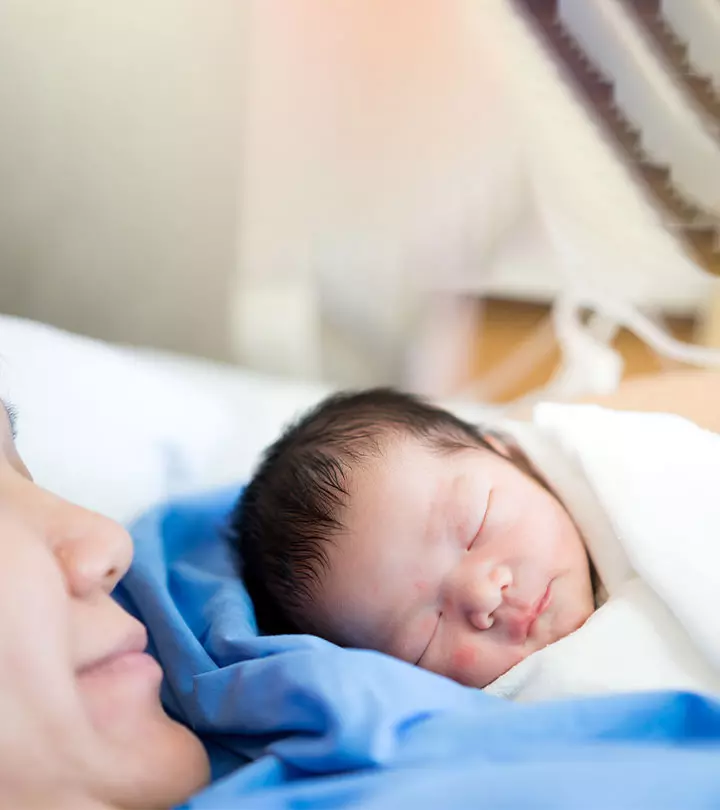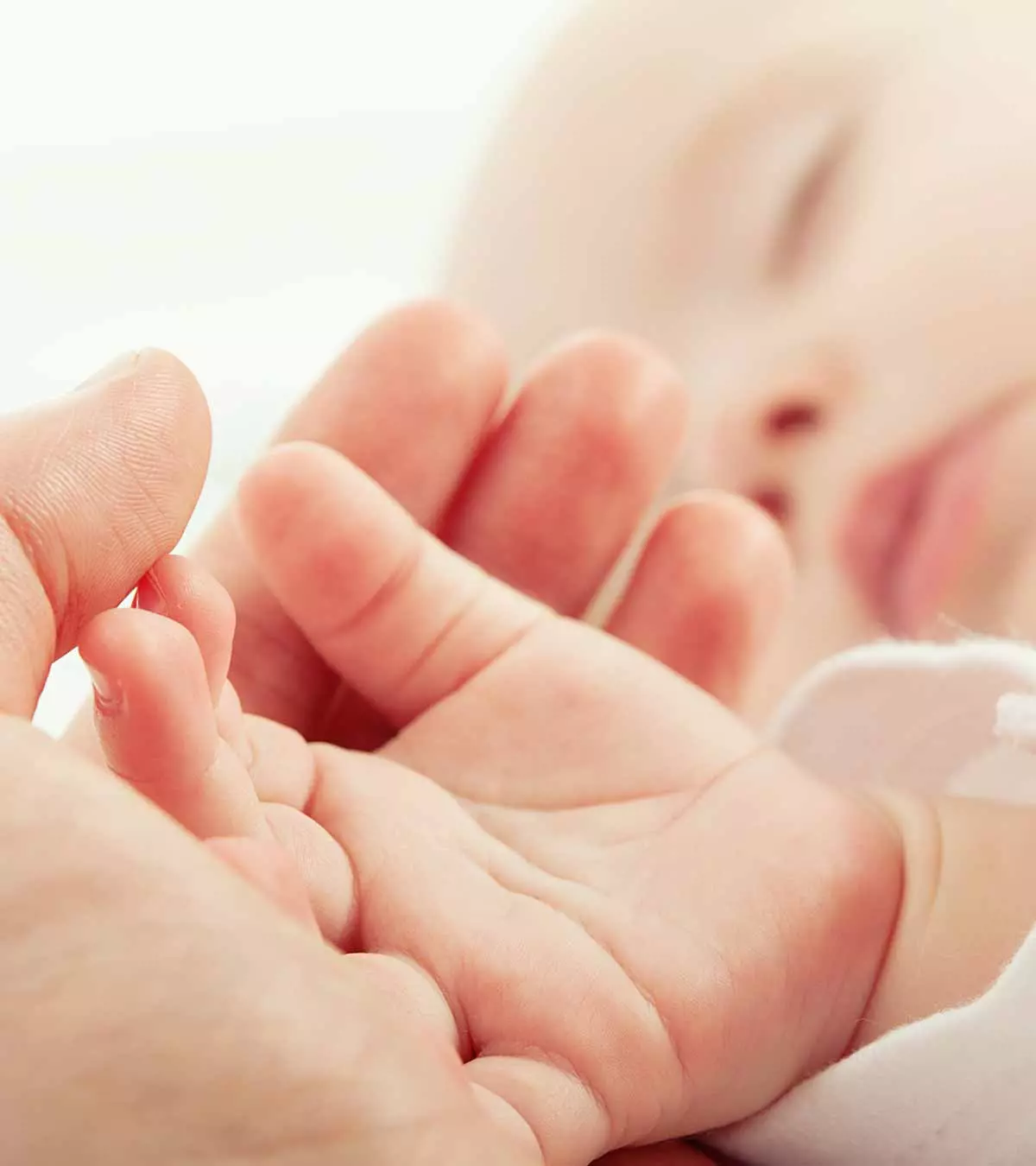

Image: iStock
Your baby needs a smooth transition from your womb to the outside world. It is a well-known fact that skin-to-skin contact with mothers is critical for a positive long-term benefit for the baby. However, if certain practices are to be believed, your baby might be taken for a while for cleaning, measuring, and weighing, or for preliminary medical-rounds before you can hold him. However, the first hour after birth must be the time whereby the baby is allowed to room-in with the mother.

An undisturbed first hour is all you need to foster the mother-baby bond. Right after birth, babies are positioned on their mother’s stomach. Both the mother and child are covered in a warm blanket to slow down adrenaline and augment prolactin and oxytocin hormones that are essential for breastfeeding and promote bonding. But here are other reasons why the first undisturbed hour is mandatory after childbirth:
1. The First Undisturbed Hour Needs No Help From Caregivers For Breastfeeding
If there is no medical intervention, the first skin-to-skin can have the baby naturally crawl to its mother’s breast and latch on to the nipple without any efforts coming from caregivers. This mechanism called ‘breast crawl’ was first observed by Swedish scientists in the 1980s, whereby they had also emphasized that babies have a natural instinct to finding their mother’s nipple like any other newborn mammal.
2. Breastfeeding In The First Hour Helps Expel The Placenta
What you need to remember that after birthing a child, your body still has the placenta and the membranes to come out of the body and also the uterus has to begin to contract. By breastfeeding in the first hour after birth, you are not only benefiting your child, but also helping your body to push out the placenta more easily and quickly with little risk of postpartum hemorrhage.
3. Higher Ability To Regulate Body Temperature And Respiration
Babies who were roomed-in with their mothers in the first hour post birth can regulate their respiration and body temperature, unlike babies who aren’t roomed in with their mothers soon. Newborns don’t have the ability to regulate their body temperature because are accustomed to the environment in their mother’s womb that is temperature controlled. Newborns also have to use more oxygen and energy to keep their temperature optimum.
4. Reduces The Risk Of Hypoglycemia In Babies
Skin-to-skin reduces the risk of low blood sugar levels in babies.
5. Delayed Cord Clamping Benefits Your Baby;
Your baby would be deriving its oxygen from the placenta until he begins to breathe through the lungs. So delaying cord clamping and leaving the umbilical cord could be a good idea. Also, your baby will receive red blood cells in the meanwhile and keep it away from anemia.
6. Protection From Separation Anxiety
Babies begin to recognize their mothers by the sound of her voice, her touch, and smell. If your baby is not exposed to medication, it will be alert and would look at you intently. It’s important for a baby to remain with its mother for its survival. Separation could even be life-threatening. Babies could protest if they can’t go back to their mothers, but if their protests do not get them to their mothers, there will be quiet and still avoid predators while their body begins to slow down to preserve heat and energy.
7. Helps Mothers Feel Confident
This is quite the opposite to those women who don’t breastfeed. A mother has more oxytocin receptors in the brain right from her pregnancy, therefore with the birth of her baby, she begins to show her maternal behavior. With increased oxytocin levels and displaying her maternal affection, mothers feel more confident.
8. Breastfeeding Success Rates Improve
The first undisturbed hour post birthing when mothers breastfeed is crucial to bringing an improved breastfeeding success rate. It also helps both the mother to nurse better while the baby learns to latch on and suckle without needing caregivers’ help.
9. Improves Your Baby’s Immunity
Studies have proven that if a newborn is not exposed to its mother’s bacteria either through the birth canal, or skin-to-skin or breastfeeding, then the baby’s immune system may not improve.
Community Experiences
Join the conversation and become a part of our nurturing community! Share your stories, experiences, and insights to connect with fellow parents.












